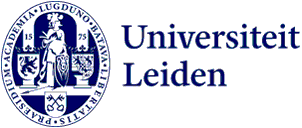
Archaeology Inter-Section journal offers students the chance to publish: ‘I learned a lot during the process’
The Faculty of Archaeology's own home-grown journal Inter-Section has released a new volume. Inter-Section offers students and PhD candidates the unique chance to publish in a peer-reviewed journal. The new volume focuses on the materials that shape our world.
Human-material relationships
‘This special issue was born out of a 2021 course titled How materials shaped the Human World at the Faculty of Archaeology of Leiden University,’ PhD candidate Marie Kolbenstetter explains. She is a member of the Editorial Board of Inter-Section. ‘This course was designed by Dr Maikel Kuijpers as a collaboration with the Royal Academy of Arts to familiarise both archaeology and design students with the new perspectives on human-material relationships offered by the theories of the 'New Materialisms'.’
In this special issue, contributors were encouraged to reevaluate archaeological, historical or material phenomena by putting materials - not people - front and centre of the narrative. ‘The resulting articles highlight the agency of the materials in shaping the social and cultural dynamics that surround them, as well as the networks that include them. This reframing of archaeology as a study of things and materials, rather than a study of the human past, allows us to extend archaeological thinking to recent and contemporary contexts.’

Phenomenology
We speak with Michael McCabe III, whose paper for a master's course has been transformed into an article worthy of publication. Michael started his studies in the midst of Covid-19, February 2021. ‘My very first course was lectured by Dr Maikel Kuijpers,’ he explains. ‘This class resonated with me and changed my whole perspective of archaeology. After I handed in my paper on the phenomenology of materials, Kuijpers suggested to me to submit it as an article in Inter-Section. I had never heard of the journal at the time.’
Peer-review
The process to rework his paper was a learning experience. ‘I had done peer-review editing before, and I found it to be very sterile and scary. Not at all with Inter-Section. Martina Revello Lami peer-reviewed my submission, and I learned so much more during this process.’ After the peer-review process the article was strengthened. ‘It forced me to be good at editing, and it really helped shape my PhD research and structure.’

Etruscan ceramics
The article applied Malafouris’ engagement theory on ceramic production. ‘The main focus was on highlighting the step-by-step construction process, and the changing perspective by the potter.’ The theoretical basis of the article now continues to be relevant in Michael's PhD research on Etruscan ceramics. ‘I have not found any academic writing that uses this perspective to investigate Etruscan style and craft production.’
Since it all took place during the Covid-19 lockdowns, Michael hardly met anyone from the Inter-Section crew. ‘All communications went via e-mail. I only met Editorial Board member Marie Kolbenstetter during Faculty drinks. I'm glad I stayed in Leiden as a PhD, so that I can keep engaging with them.’
Website renewed
The Inter-Section website has recently been renewed. Take a look via the link below.
Inter-Section website